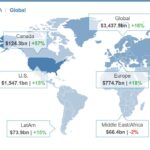How Much Does A Cpa Cost? Finding the right Certified Public Accountant is key to your business success. HOW.EDU.VN can connect you with expert CPAs. Understanding the costs associated with hiring a CPA is essential for small business owners seeking financial expertise. Tax planning, financial statements and outsourced accounting are some of the key services.
1. Factors Influencing CPA Service Costs
The expense of CPA services for your small business is not set in stone; it fluctuates based on a number of key elements. Comprehending these factors will empower you to budget with greater accuracy and select a CPA whose services align with your economic parameters.
1.1 Scope of Services Required
CPAs provide an array of services, from the foundational tasks of bookkeeping and tax filing to the more intricate realms of financial planning and strategic guidance. The wider the variety of services, the higher the cost of the CPA.
1.2 Complexity of Business Operations
The simpler the business structure, the lower the cost of CPA services. A sole proprietorship typically incurs lower costs compared to those of a multi-owner corporation with diverse revenue streams.
1.3 Geographical Location of Services
CPA fees are also subject to geographical variations. For example, CPAs located in major cities or metropolitan areas have higher CPA fees than those in rural locations.
1.4 CPA Experience and Expertise
Experience and expertise affect the fee structure. CPAs with specialized knowledge in specific industries may charge more than those with less experience.
1.5 Frequency of CPA Services
The frequency of your need for CPA services affects the overall cost. Whether you require year-round assistance or just help during tax season, it will directly affect the costs.
2. Common CPA Pricing Models
Understanding the different billing methods helps small businesses estimate and manage their accounting expenses effectively. Most CPAs use one of the following pricing models:
2.1 Hourly Rates
Many CPAs bill their clients on an hourly basis. This can range anywhere from $150 to $400 per hour depending on the services provided. Annually, this can cost a business thousands of dollars.
2.2 Fixed Fees
Some CPAs offer fixed-fee packages for specific services, such as preparing and filing a basic business tax return, which may cost between $1,000 and $3,000. However, this price can increase to $5,000 or more for more complex returns.
2.3 Monthly Retainers
Ongoing services may be offered under a monthly retainer arrangement. Depending on the scope of services provided, this can range from a few hundred to several thousand dollars monthly.
3. Cost Breakdown of Common CPA Services
To give you a clearer picture of potential costs, here is a detailed breakdown of common CPA services and their typical price ranges:
3.1 Bookkeeping
Maintaining accurate and up-to-date financial records is crucial for any business. Bookkeeping services include recording financial transactions, reconciling bank accounts, and generating financial reports. The cost of bookkeeping services can vary based on the volume of transactions and the complexity of the business. Typical Cost: $300 – $2,000 per month.
3.2 Payroll Processing
Managing payroll involves calculating employee wages, withholding taxes, and ensuring timely payments. Many small businesses outsource payroll processing to CPAs to avoid errors and compliance issues. Typical Cost: $200 – $1,000 per month.
3.3 Tax Preparation
Filing business taxes can be complex. CPAs help businesses navigate tax laws, claim deductions, and file accurate returns. The cost of tax preparation depends on the complexity of the business and the number of tax forms required. Typical Cost: $1,000 – $5,000+ annually.
3.4 Financial Statement Preparation
Financial statements such as balance sheets, income statements, and cash flow statements provide insights into a company’s financial performance. CPAs can prepare these statements to help businesses track their financial health and make informed decisions. Typical Cost: $1,000 – $5,000 annually.
3.5 Audit Support
In the event of an audit, CPAs can provide support by gathering necessary documents, communicating with auditors, and ensuring compliance. The cost of audit support varies widely based on the complexity of the audit and the level of assistance required. Typical Cost: $5,000 – $20,000+ (varies widely based on complexity).
3.6 Strategic Financial Planning
CPAs can assist with long-term financial planning, budgeting, and forecasting. These services help businesses set financial goals and develop strategies to achieve them. Typical Cost: $1,000 – $5,000+ per engagement.
Remember, these are general ranges, and actual costs can fall outside these boundaries depending on your specific situation. At HOW.EDU.VN, we have a team of professional doctors and experts who can help you.
4. Alternatives to Hiring a Traditional CPA
For businesses with limited budgets, the following alternatives to hiring a full-service CPA can be considered:
4.1 Outsourced Accounting Services
Companies such as HOW.EDU.VN offer comprehensive financial services at a fraction of the cost of hiring in-house staff or traditional CPA firms. These services often combine technology with expert support to provide scalable solutions for growing businesses.
4.2 Bookkeeping Software
Tools such as QuickBooks or Xero can handle basic bookkeeping tasks, which can potentially reduce the need for year-round CPA services.
4.3 Tax Preparation Software
Software such as TurboTax Business can be a cost-effective option for simple tax situations.
4.4 Part-Time or Seasonal Help
Some businesses only need CPA services during tax season or for specific projects. By hiring part-time or seasonal help, overall costs can be significantly reduced.
 How Much Does a CPA Cost?
How Much Does a CPA Cost?
5. Local vs. Virtual CPAs
When managing your small business finances, deciding between a local CPA and a virtual CPA can greatly affect your financial results. Although both have advantages, virtual CPAs frequently provide considerable cost reductions.
5.1 Local CPA
Traditional CPAs located in the area typically have greater overhead expenses to keep a physical office, which translates to higher prices for clients. Depending on expertise and location, costs vary from $150 to $400 or more.
5.2 Virtual CPA
Virtual CPAs frequently provide services at lower prices because of lower operating expenses. Their rates vary from $100 to $300 per hour. In addition, several virtual CPA services provide fixed-rate packages or monthly subscriptions, which could be more affordable for ongoing needs.
5.3 Benefits of Virtual CPAs
Virtual CPAs provide the following benefits:
- Lower Hourly Rates: Virtual CPAs typically bill lower hourly rates as a result of not needing to maintain a physical office.
- Flexible Packages: Several virtual CPA services provide adaptable packages, enabling you to only pay for services as needed.
- No Geographic Limitations: You can hire a virtual CPA from anywhere, possibly getting lower prices in regions with cheaper living expenses.
- Efficient Communication: Virtual CPAs frequently use technology to streamline communication, cutting down on billable hours spent on in-person meetings.
- Bundled Services: Some virtual CPA platforms provide complete financial services that integrate accounting, CFO advising, and taxes. Compared to putting together services from various providers, this bundled strategy may be more economical.
Virtual CPAs may offer significant cost savings, but it’s essential to make sure they have the required knowledge and are familiar with the tax regulations of your state. Furthermore, if you prefer face-to-face interactions or have complex financial circumstances that call for extensive in-person collaboration, a local CPA could be worth the additional expense.
6. How to Get the Most Value From CPA Services
Consider the following points to guarantee that you are optimizing your CPA investment:
6.1 Maintain Organized Records
Keeping your financial records organized will save your CPA time and lower expenses.
6.2 Set Clear Communication Channels
Make sure to clearly define the work you require to prevent misunderstandings and unanticipated charges.
6.3 Think About Package Deals
If you require multiple services, inquire about package deals or retainer agreements that may offer better value.
6.4 Always Stay Informed
You can collaborate more effectively with your CPA and potentially shorten the amount of time they need to spend explaining basic concepts by learning more about your company’s financial situation.
6.5 Practice Advance Planning
Avoid waiting until the last minute to file taxes or complete other time-sensitive tasks. There is frequently a premium price attached to rush employment.
7. Contact HOW.EDU.VN for Expert CPA Services
The cost of CPA services for a small business can vary widely, so it’s important to view this expense as an investment in your company’s financial health and compliance. A good CPA can potentially save you money through tax planning, help you avoid costly mistakes, and provide valuable insights for business growth.
For many small businesses, a combination of in-house efforts, software solutions, and targeted CPA services often provides the most cost-effective approach. HOW.EDU.VN offers an attractive middle ground, providing expert financial services with doctors and experts at a more affordable rate than traditional CPA firms.
The best solution will ultimately depend on the individual needs, complexity, and budget of your business. You can locate a CPA solution that offers the financial expertise you require at a cost that works for your small business by carefully assessing your needs and investigating various options.
Contact us today to find out how our team of experienced professionals can help you achieve financial success.
Address: 456 Expertise Plaza, Consult City, CA 90210, United States
WhatsApp: +1 (310) 555-1212
Website: how.edu.vn
8. How to Choose a CPA
Choosing the right CPA is a crucial decision for small businesses. Here are some essential steps to ensure you find the best fit for your needs:
8.1 Assess Your Business Needs
First, determine what specific services you require. Do you need help with basic bookkeeping, tax preparation, financial planning, or all of the above? Understanding your needs will help you narrow down your search.
8.2 Check Credentials and Experience
Ensure the CPA is licensed and in good standing with the relevant professional organizations. Look for CPAs with experience in your industry, as they will be more familiar with the specific financial challenges and opportunities your business may face.
8.3 Seek Referrals and Read Reviews
Ask other business owners for referrals and read online reviews to get a sense of the CPA’s reputation. A CPA with a strong track record and positive client feedback is more likely to provide reliable service.
8.4 Schedule Consultations
Meet with potential CPAs to discuss your needs and assess their communication style. A good CPA should be able to explain complex financial concepts in a clear and understandable manner.
8.5 Compare Pricing and Services
Obtain quotes from multiple CPAs and compare their pricing structures and service offerings. Don’t just focus on the lowest price; consider the value you’ll receive for your investment.
8.6 Evaluate Technology and Communication
In today’s digital age, it’s important to choose a CPA who uses technology effectively. Look for CPAs who offer online portals, cloud-based accounting solutions, and efficient communication channels.
8.7 Consider a Trial Period
Some CPAs offer a trial period or a short-term engagement to allow you to assess their services before committing to a long-term contract.
9. How to Ensure Compliance and Accuracy in Financial Reporting
Maintaining compliance and accuracy in financial reporting is essential for small businesses. Here are some key steps to ensure your financial reports are reliable and accurate:
9.1 Implement Strong Internal Controls
Establish internal controls to prevent errors and fraud. This includes segregating duties, requiring approvals for financial transactions, and conducting regular reconciliations.
9.2 Use Accounting Software Effectively
Utilize accounting software such as QuickBooks or Xero to automate bookkeeping tasks and generate accurate financial reports. Ensure your staff is properly trained on the software to minimize errors.
9.3 Conduct Regular Reconciliations
Reconcile bank accounts, credit card statements, and other financial records regularly to identify and correct any discrepancies.
9.4 Stay Updated on Accounting Standards
Keep up with the latest accounting standards and regulations to ensure your financial reports comply with all applicable rules.
9.5 Perform Periodic Audits
Consider conducting periodic internal or external audits to review your financial processes and identify areas for improvement.
9.6 Document Financial Policies and Procedures
Document your financial policies and procedures to provide clear guidance to staff and ensure consistency in financial reporting.
9.7 Seek Professional Advice
Consult with a CPA or other financial professional to review your financial reports and processes and ensure compliance with all applicable regulations.
10. FAQs About CPA Costs
1. What is a CPA, and why do I need one?
A Certified Public Accountant (CPA) is a licensed professional who provides accounting, tax, and financial planning services. Hiring a CPA ensures accurate financial reporting, compliance with tax laws, and strategic financial advice.
2. How much does it cost to hire a CPA for tax preparation?
The cost of tax preparation can range from $1,000 to $5,000+ annually, depending on the complexity of your business and the number of tax forms required.
3. What is the average hourly rate for a CPA?
The average hourly rate for a CPA ranges from $150 to $400 or more, depending on their experience, expertise, and location.
4. Is it cheaper to hire a virtual CPA vs. a local CPA?
Virtual CPAs often offer lower rates due to reduced overhead costs. Their fees may range from $100 to $300 per hour, making them a cost-effective option for many small businesses.
5. What services are typically included in a monthly retainer with a CPA?
A monthly retainer may include bookkeeping, payroll processing, tax planning, financial statement preparation, and ongoing financial advice.
6. Can I deduct CPA fees on my business taxes?
Yes, CPA fees related to business expenses, such as tax preparation and financial planning, are generally deductible on your business taxes.
7. How can I reduce the cost of CPA services?
You can reduce the cost of CPA services by keeping organized financial records, communicating clearly about your needs, and considering package deals or retainer arrangements.
8. What are the benefits of outsourcing my accounting to a CPA firm?
Outsourcing your accounting can save you time and money, ensure accurate financial reporting, and provide access to expert financial advice.
9. How do I find a qualified CPA for my small business?
You can find a qualified CPA by seeking referrals, reading online reviews, checking credentials, and scheduling consultations.
10. What questions should I ask a CPA before hiring them?
Ask about their experience, expertise, pricing structure, communication style, and technology capabilities. Also, inquire about their familiarity with your industry and their approach to problem-solving.

